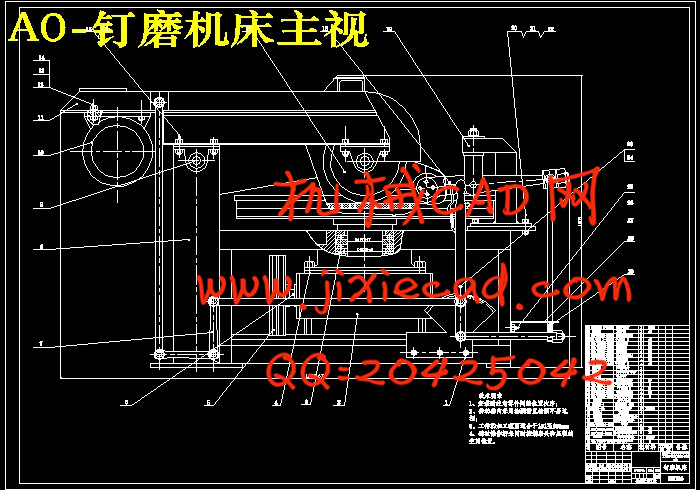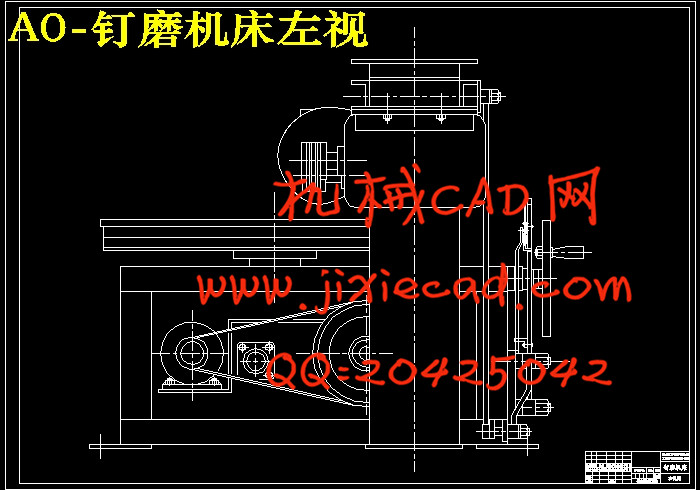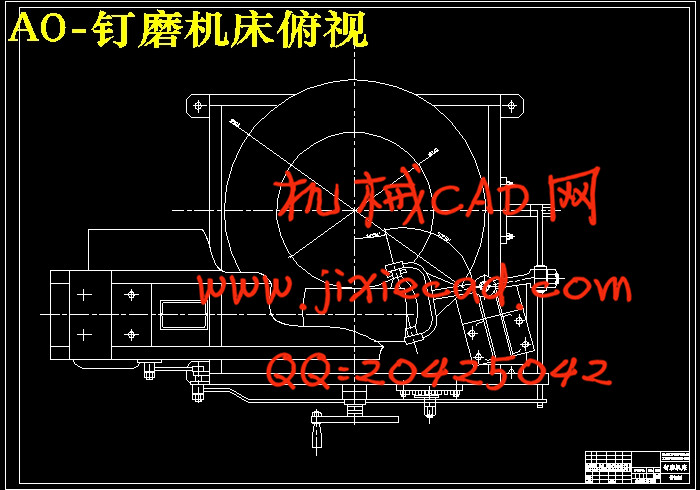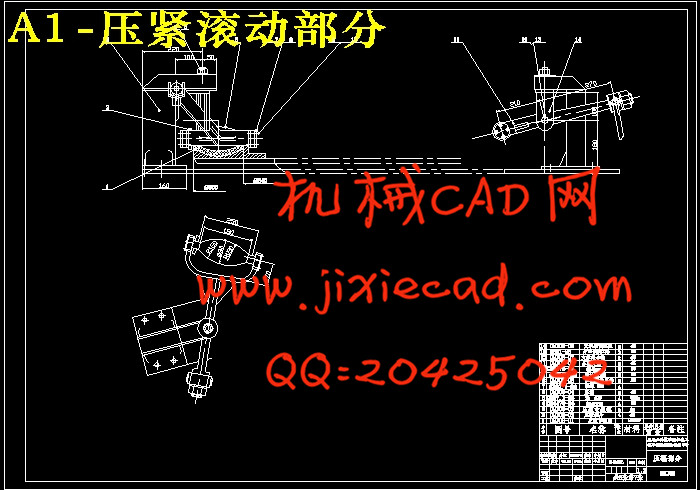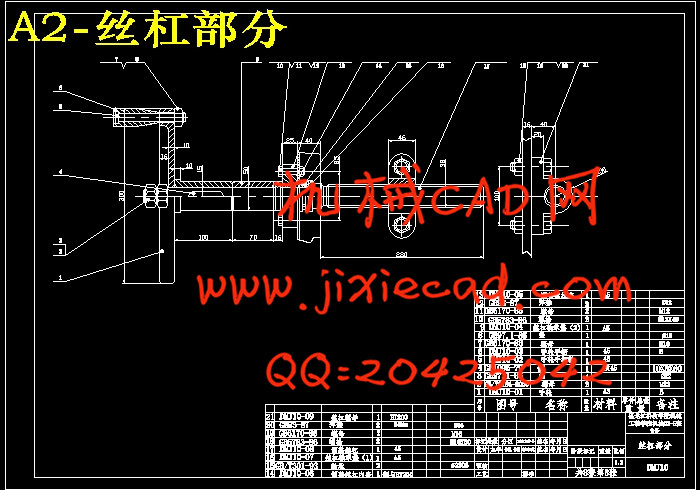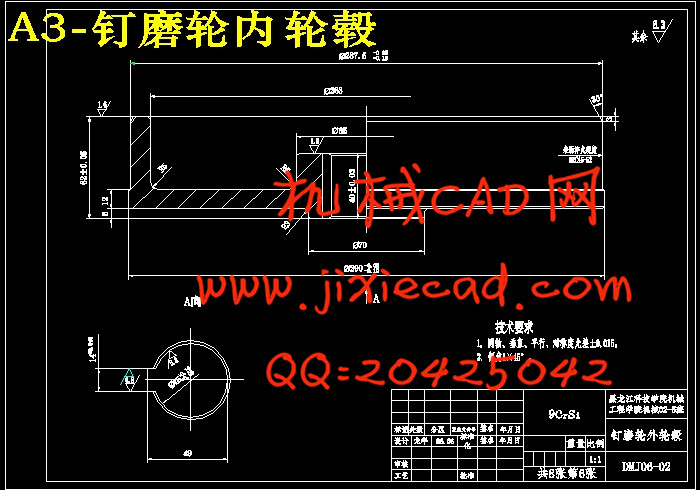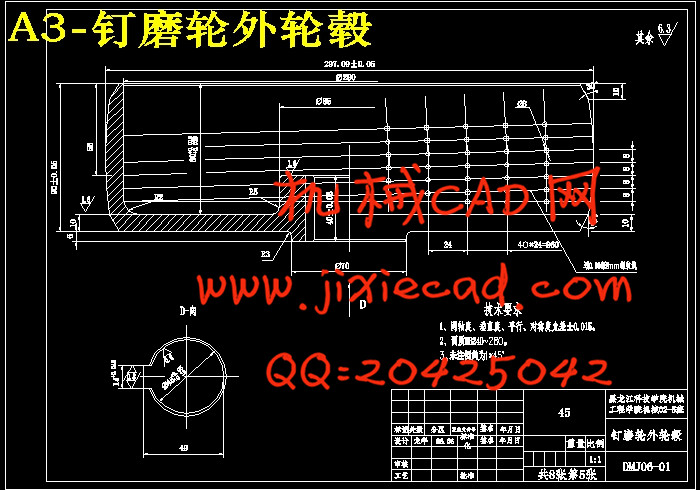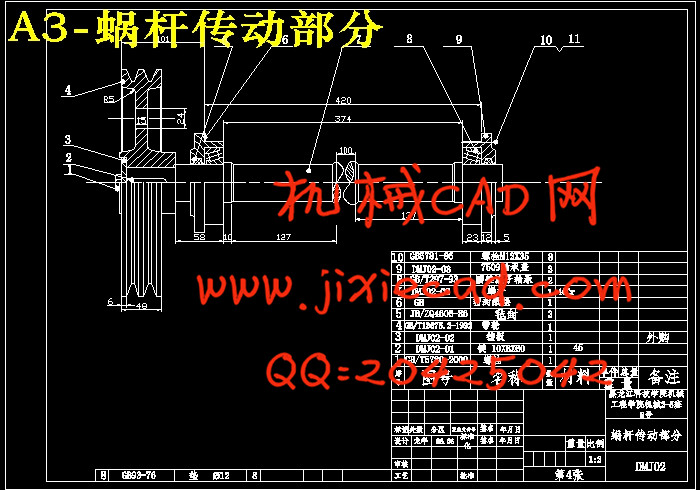设计简介
摘要
为了把报废轮胎进行回收利用,加工成农业机械用的实心轮胎。而设计了钉磨机床,钉磨机床是属于专用机床,它是实心轮胎加工中的其中一道工序。据统计,目前全世界每年有15亿条轮胎报废,其中北美大约4亿条,西欧近2亿条,日本1亿条[1~5]。如何将废旧轮胎资源化、减量化、无害化,不仅关系到环境保护这个重要的社会问题,而且还关系到持续发展这一全球性的战略问题。所以对为了把废旧轮胎进行回收加工的机械进行优化设计是有重大意义的,国外例如美国等国家关于类似的机床设计挺多的他们关于废轮胎回收利用的企业挺多的。
关键字:报废轮胎 蜗杆传动部分 带传动部分 压辊部分
Abstract
For proceeds to discards the tire the recovery makes use of, processing the solid tire that farm machinery use.But design the whets the machine bed, the whets the machine bed is an among them a work to belong to the appropriation machine bed, it is, in the solid tire that process preface.According to the covariance, the current whole world reaches annually 2,200,000,000 about 4 of hundred million, Western Europe is near 2 of hundred million,1 of hundred million : Japan[1 5] of ~ .How to will discard the old tire recycling and reduce the deal turns, harmless turn, not only relate to the this important and social problem in environmental protection, but also still relate to keep on developping this world strategy problem.So to for proceeds to discard recovery that old tire the machine processes to proceed excellent turn the design is a business enterprise to have great significance, abroad for example the United States etc. nation concerning similar machine bed design pretty many they concerning discard tire recover the exploitation pretty many.
Key word:Discarding the tire Pole spreads to move the part Takes to spread to move the part Presses the roll part
目录
摘要 ………………………………………………………………I
Abstract …………………………………………………………II
第1章 绪论………………………………………………………1
1.1 钉磨机床的技术现状及发展趋势 ……………………1
第2章 钉磨机床的机构方案……………………………………2
2.1 钉磨机床的研究目的和意义 …………………………2
2.2 钉磨机床的特点 ………………………………………2
2.3 钉磨机床的用途和应用领域 …………………………2
2.4 总体方案确定 …………………………………………2
2.5 钉磨机床的结构方案确定 ……………………………3
2.5.1 钉磨头部分 …………………………………4
2.5.2 蜗杆传动部分 ………………………………4
2.5.3 带传动部分 …………………………………4
2.5.4 齿轮传动部分 ………………………………4
2.5.5 压辊部分 ……………………………………4
第3章 钉磨头部分的结构方案设计……………………………6
3.1 引言 ……………………………………………………6
3.2 钉磨头的结构方案 ……………………………………6
3.2.1 钉磨头的结构方案确定 ……………………7
第4章 蜗杆传动部分的设计……………………………………8
4.1 蜗杆传动的类型 ………………………………………8
4.2 蜗杆传动的失效形式 …………………………………9
4.3 蜗杆刚度计算和蜗轮轮齿强度计算分析 ……………11
4.3.1 蜗轮齿面接触疲劳强度计算 ………………11
4.3.2 蜗轮齿根弯曲疲劳强度计算 ………………14
4.3.3 蜗杆传动的刚度计算 ………………………15
4.4 材料选择: ……………………………………………16
4.5 设计计算: ……………………………………………16
4.5.1 接触疲劳强度计算:…………………………17
4.5.2 弯曲疲劳强度校核 …………………………19
第5章 带传动部分的设计 ……………………………………22
5.1 概述……………………………………………………22
5.1.1 带传动的特点 ………………………………22
5.1.2 应用范围 ……………………………………22
5.1.3 带传动中的力分析 …………………………23
5.2 普通V带传动设计……………………………………25
5.2.1 V带传动的具体设计…………………………25
5.2.2 带的弹性滑动和打滑 ……………………28
5.3 V带轮结构设计 ………………………………………31
5.3.1 V带轮设计的要 ……………………………31
5.3.2 带轮的材料 …………………………………31
5.3.3 结构尺寸 …………………………………31
第6章 齿轮传动部分设计 ……………………………………33
6.1 概述 …………………………………………………33
6.1.1 齿轮传动的主要特点: ……………………33
6.2 失效形式 ……………………………………………34
6.3 设计内容 ……………………………………………34
6.3.1 按齿面接触强度设计 ………………………35
6.3.2 按齿根弯曲强度设计 ………………………37
6.3.3 几何尺寸计算 ………………………………39
第7章 绿色制造技术 …………………………………………40
7.1 绿色设计的主要内容 ………………………………40
7.2 绿色设计的原则 ……………………………………41
第8章 技术经济性分析 ………………………………………43
结论 ………………………………………………………………44
致谢 ………………………………………………………………45
参考文献 …………………………………………………………46
为了把报废轮胎进行回收利用,加工成农业机械用的实心轮胎。而设计了钉磨机床,钉磨机床是属于专用机床,它是实心轮胎加工中的其中一道工序。据统计,目前全世界每年有15亿条轮胎报废,其中北美大约4亿条,西欧近2亿条,日本1亿条[1~5]。如何将废旧轮胎资源化、减量化、无害化,不仅关系到环境保护这个重要的社会问题,而且还关系到持续发展这一全球性的战略问题。所以对为了把废旧轮胎进行回收加工的机械进行优化设计是有重大意义的,国外例如美国等国家关于类似的机床设计挺多的他们关于废轮胎回收利用的企业挺多的。
关键字:报废轮胎 蜗杆传动部分 带传动部分 压辊部分
Abstract
For proceeds to discards the tire the recovery makes use of, processing the solid tire that farm machinery use.But design the whets the machine bed, the whets the machine bed is an among them a work to belong to the appropriation machine bed, it is, in the solid tire that process preface.According to the covariance, the current whole world reaches annually 2,200,000,000 about 4 of hundred million, Western Europe is near 2 of hundred million,1 of hundred million : Japan[1 5] of ~ .How to will discard the old tire recycling and reduce the deal turns, harmless turn, not only relate to the this important and social problem in environmental protection, but also still relate to keep on developping this world strategy problem.So to for proceeds to discard recovery that old tire the machine processes to proceed excellent turn the design is a business enterprise to have great significance, abroad for example the United States etc. nation concerning similar machine bed design pretty many they concerning discard tire recover the exploitation pretty many.
Key word:Discarding the tire Pole spreads to move the part Takes to spread to move the part Presses the roll part
目录
摘要 ………………………………………………………………I
Abstract …………………………………………………………II
第1章 绪论………………………………………………………1
1.1 钉磨机床的技术现状及发展趋势 ……………………1
第2章 钉磨机床的机构方案……………………………………2
2.1 钉磨机床的研究目的和意义 …………………………2
2.2 钉磨机床的特点 ………………………………………2
2.3 钉磨机床的用途和应用领域 …………………………2
2.4 总体方案确定 …………………………………………2
2.5 钉磨机床的结构方案确定 ……………………………3
2.5.1 钉磨头部分 …………………………………4
2.5.2 蜗杆传动部分 ………………………………4
2.5.3 带传动部分 …………………………………4
2.5.4 齿轮传动部分 ………………………………4
2.5.5 压辊部分 ……………………………………4
第3章 钉磨头部分的结构方案设计……………………………6
3.1 引言 ……………………………………………………6
3.2 钉磨头的结构方案 ……………………………………6
3.2.1 钉磨头的结构方案确定 ……………………7
第4章 蜗杆传动部分的设计……………………………………8
4.1 蜗杆传动的类型 ………………………………………8
4.2 蜗杆传动的失效形式 …………………………………9
4.3 蜗杆刚度计算和蜗轮轮齿强度计算分析 ……………11
4.3.1 蜗轮齿面接触疲劳强度计算 ………………11
4.3.2 蜗轮齿根弯曲疲劳强度计算 ………………14
4.3.3 蜗杆传动的刚度计算 ………………………15
4.4 材料选择: ……………………………………………16
4.5 设计计算: ……………………………………………16
4.5.1 接触疲劳强度计算:…………………………17
4.5.2 弯曲疲劳强度校核 …………………………19
第5章 带传动部分的设计 ……………………………………22
5.1 概述……………………………………………………22
5.1.1 带传动的特点 ………………………………22
5.1.2 应用范围 ……………………………………22
5.1.3 带传动中的力分析 …………………………23
5.2 普通V带传动设计……………………………………25
5.2.1 V带传动的具体设计…………………………25
5.2.2 带的弹性滑动和打滑 ……………………28
5.3 V带轮结构设计 ………………………………………31
5.3.1 V带轮设计的要 ……………………………31
5.3.2 带轮的材料 …………………………………31
5.3.3 结构尺寸 …………………………………31
第6章 齿轮传动部分设计 ……………………………………33
6.1 概述 …………………………………………………33
6.1.1 齿轮传动的主要特点: ……………………33
6.2 失效形式 ……………………………………………34
6.3 设计内容 ……………………………………………34
6.3.1 按齿面接触强度设计 ………………………35
6.3.2 按齿根弯曲强度设计 ………………………37
6.3.3 几何尺寸计算 ………………………………39
第7章 绿色制造技术 …………………………………………40
7.1 绿色设计的主要内容 ………………………………40
7.2 绿色设计的原则 ……………………………………41
第8章 技术经济性分析 ………………………………………43
结论 ………………………………………………………………44
致谢 ………………………………………………………………45
参考文献 …………………………………………………………46


